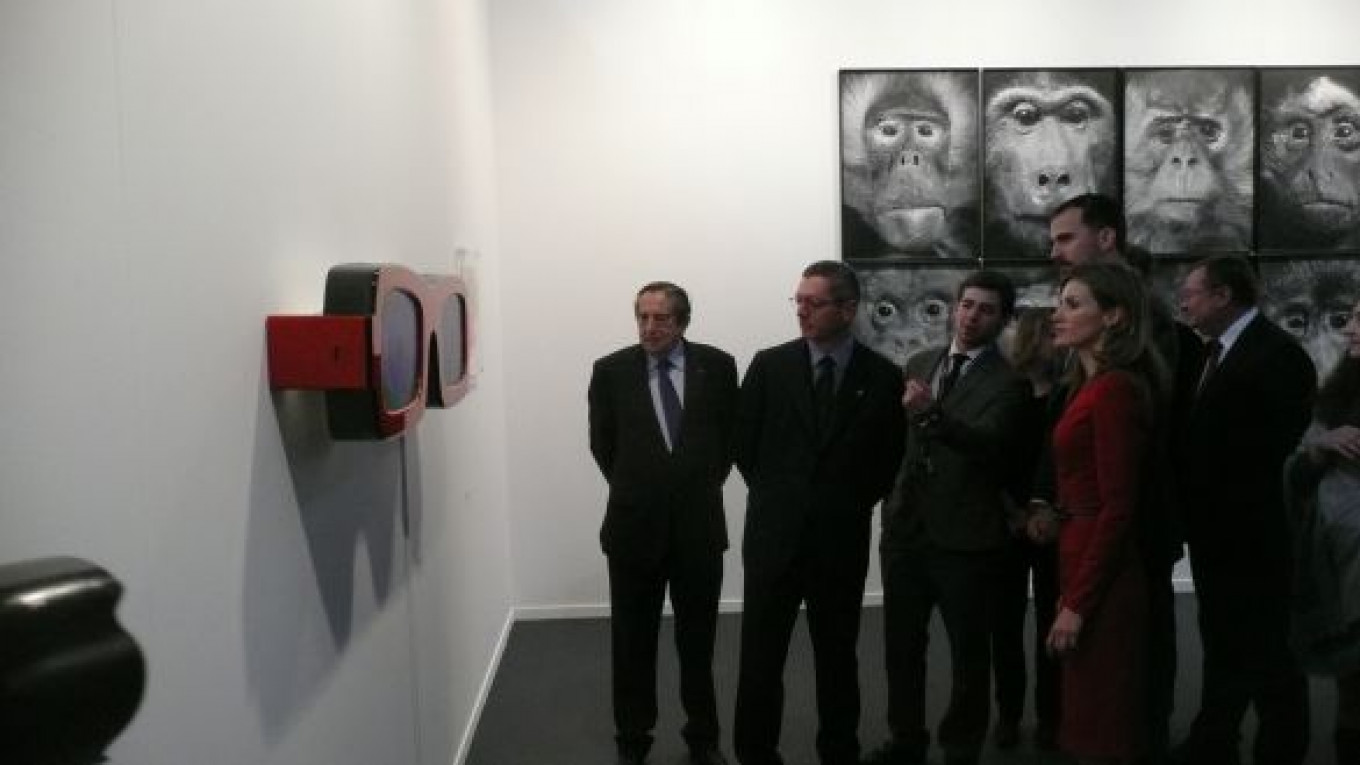MADRID — Russia and Spain will be seeing a lot of each other in the next year as both countries begin a mammoth cultural exchange.
King Juan Carlos II marked the opening of the Spain-Russia year of cultural exchange in St. Petersburg last Friday with the opening of the “Prado in the Hermitage” exhibition, which features 66 classical Spanish, Flemish and Italian paintings from Madrid’s grand old museum and marks the start of an unprecedented series of Spanish events set to take place in Moscow and throughout the country.
Among others, the Pushkin Museum is set to host the exhibition “Joan Miro and His Circle” in April; Oscar-winning actor Javier Bardem will run a master class for young actors in May; and opera star Placido Domingo is scheduled to perform at the Operalia competition in late July.
A staggering 170 artworks from the Hermitage’s collection, ranging from the fifth to the 20th century, will go on display at the Prado in November.
It was a more contemporary sort of collaboration, however, that marked the start of the Russia year in Spain two weeks ago at Madrid’s ARCO art fair, which featured a special “Focus Russia” section spotlighting galleries and institutions selected by National Center for Contemporary Arts curator Daria Pyrkina.
“Alongside more veteran and well-established galleries that started out in the early 1990s, I have chosen other more recent ones that are already beginning to make a name for themselves,” Pyrkina said. “It’s not the most obvious selection, but the idea is to show the complexity and ambiguity of Russia’s institutional processes.”
Nonetheless, Russia’s few international-caliber galleries were all in attendance bar the two bad boys: Regina, which broke off from Art Moscow to set up its own art fair at Krasny Oktyabr last December, and Triumph, whose offices were the subject of a midnight Federal Security Service raid two weeks ago in connection with an investigation into an illegal gambling ring.
The Aidan and M&J Guelman galleries are both veterans of ARCO, while XL is the only Russian gallery that regularly attends Art Basel and London’s Frieze, the highlights of the art fair calendar.
ARCO, for its part, is more of a regional than an international event these days, featuring predominantly Iberian galleries selling decorative works to local collectors. But if anything, this seemed to help the Russian galleries — which, as a rule, sell largely decorative pieces at low prices — fit into the local context.
“It’s totally different from Frieze or Basel, yes,” said Yelena Selina, director of XL Gallery. “The first two days in particular,” when the fair is only open to collectors and invited professionals, “are a lot less intense. But it’s done very nicely — we’ve been scattered about the fair rather than put together in a reservation.”
Most importantly for Selina and the other gallerists, sales went well across the board. Despite Pyrkina’s hopes that the Focus Russia section would showcase more challenging and up-to-the-minute conceptual art, it was largely the more entertaining works that did well. Though dominated by legendary performance artist Oleg Kulik’s “Dead Monkeys,” a huge tableau of taxidermic primates Pyrkina had specially insisted on bringing, the main attraction at XL’s stand was the decidedly more accessible Electroboutique group. Their interactive, oversized television sets and eyeglasses, which allow viewers to warp their own images by pushing buttons, sold two copies each and drew in huge crowds of gawking viewers — including Crown Prince Felipe of Asturias, who spent more time at XL’s stand than at any other at the fair.
For more info on the Spanish events set to take place in Russia, see www.spain-russia2011.ru.
A Message from The Moscow Times:
Dear readers,
We are facing unprecedented challenges. Russia's Prosecutor General's Office has designated The Moscow Times as an "undesirable" organization, criminalizing our work and putting our staff at risk of prosecution. This follows our earlier unjust labeling as a "foreign agent."
These actions are direct attempts to silence independent journalism in Russia. The authorities claim our work "discredits the decisions of the Russian leadership." We see things differently: we strive to provide accurate, unbiased reporting on Russia.
We, the journalists of The Moscow Times, refuse to be silenced. But to continue our work, we need your help.
Your support, no matter how small, makes a world of difference. If you can, please support us monthly starting from just $2. It's quick to set up, and every contribution makes a significant impact.
By supporting The Moscow Times, you're defending open, independent journalism in the face of repression. Thank you for standing with us.
Remind me later.






